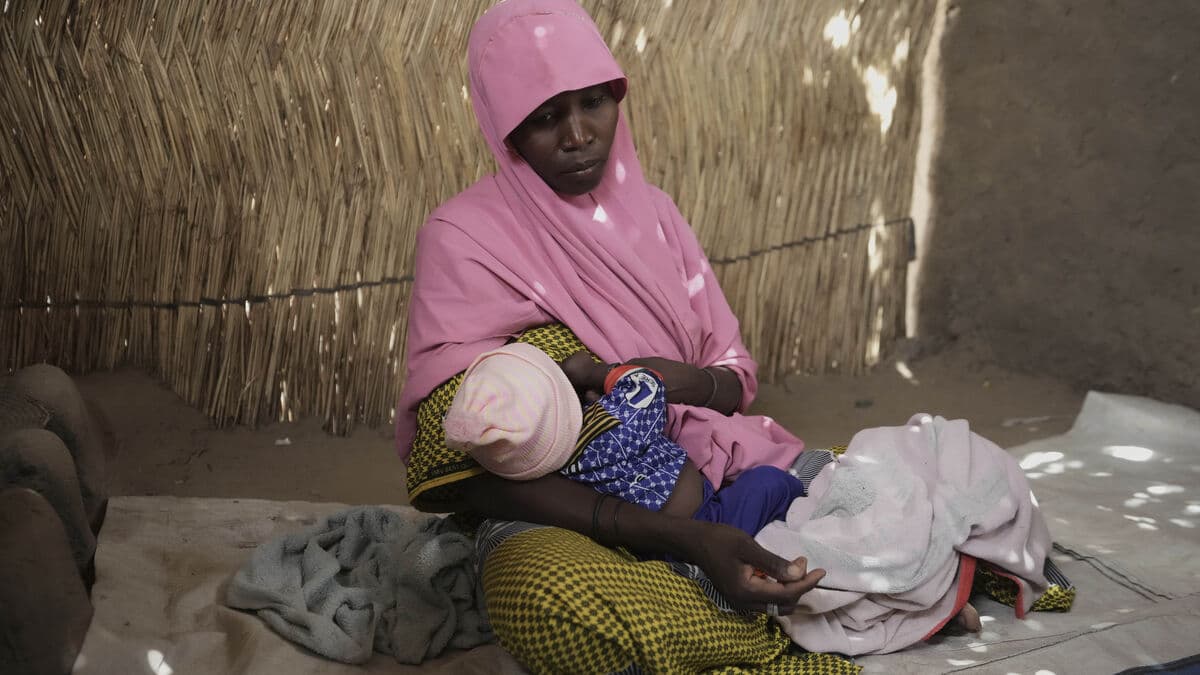USA, January 2025. Donald Trump has been sworn in as president and is hanging out with entrepreneur and tech billionaire Elon Musk. Musk is tasked with leading Doge, an “efficiency agency” that will optimize the state apparatus through primarily cutbacks.
The Tesla and Space X founder, who plays golf with the president and is jokingly called "first pal", promises to save hundreds of billions of government dollars.
USAID becomes one of his first targets. 58 high-ranking officials, including Karlan, are informed via email one weekend that they have been relieved of their duties.
The irony was that I had a job that you couldn't be laid off from. But the lawyer who could tell Doge how to get rid of me had been fired, he smiles during a brief visit to Stockholm for the Misum Forum sustainability conference.
“Time to die”
Publicly, it was said that USAID's aid programs would be evaluated, that the Trump administration wanted to ensure that they "served the country's interests." But it soon became clear to Karlan that the White House was not interested in reforming aid. The agency was being dismantled.
"USAID is a criminal organization, it's time for it to die," Elon Musk wrote on X in February, after the agency refused to hand over documents to Doge staff who did not have the proper security clearance.
Dean Karlan has spoken in interviews about the painful weeks when he realized that colleagues who had dedicated their lives to helping others were being subjected to “psychological warfare” and given fifteen minutes to clear their workplaces. About the realization that millions of people around the world would soon be without support, medicine and education.
That people would die.
They destroyed the aid work and it is still unclear whether they intend to replace it with anything, he says.
For my part, I felt like I was wasting time and energy. It would have been better if I had resigned and worked in a different way.
Help with planning?
Development economist and social entrepreneur Karlan, who is a professor of economics at Northwestern University, has worked for just over two years helping USAID "get more value for money," as he puts it.
In practice, this mainly meant applying research on forms of aid and their evaluation to the operations.
Karlan and his team have shown , among other things, that psychosocial support for families living in poverty – that is, education about savings, problem-solving and planning – can make just as big a difference as cash assistance. In the long term, even greater.
Working more cost-effectively is something both Republicans and Democrats want. There is no partisan conflict there, he notes.
When Marco Rubio was appointed as Donald Trump's Secretary of State, Dean Karlan was initially happy. During his time as a senator, Rubio emphasized the importance of aid, both humanitarian and for national security.
But then came the edict that all projects must make the United States either safer, stronger, or more successful.
Alarm on alarm
Now, with USAID closed and a small number of aid projects and around 300 of the more than 10,000 employees moved to the State Department, Karlan has changed focus.
Instead of emphasizing the benefits of USAID's work (from keeping diseases like Ebola at bay to securing influence in certain regions through "soft power"), he and a group of like-minded people are examining what the future of US aid work might look like.
I – we – think three, seven, eleven years into the future. The goal is a plan, an aid system that both Republicans and Democrats can sign on to.
At the same time, alarms are ringing about the consequences of the curtailed aid. The UN and aid agencies are laying off staff, vaccinations are being cancelled, and emergency aid is failing.
This summer, researchers in the journal The Lancet warned that over 14 million of the world's most vulnerable could die by 2030. And recently, the UN World Food Programme WFP warned that 14 million people are at risk of extreme hunger.
It is absurd to claim that these cuts are not causing deaths, says Dean Karlan.
So what keeps him awake at night?
What worries me most is whether we have ruined our ability to help in the future. I think about how seriously damaged our credibility is.
USAID was the United States' government development agency with offices in some 60 countries and operations in around 120 countries.
The agency had over 10,000 employees and a budget of $42.8 billion, according to congressional records. The money was earmarked for both humanitarian aid and long-term development efforts.
The aid agency was dismantled and the majority of employees laid off shortly after current US President Donald Trump took office in January. 83 percent of aid projects were closed, a small percentage were transferred to the State Department.
"The 5,200 contracts that have now been canceled have cost tens of billions of dollars in ways that have not benefited (and in some cases harmed) the national interests of the United States," Secretary of State Marco Rubio justified the decision on the X platform.
Before the closure, USAID was described as the world's largest aid donor, the agency accounted for 42 percent of all global funding for humanitarian aid, according to AFP.






